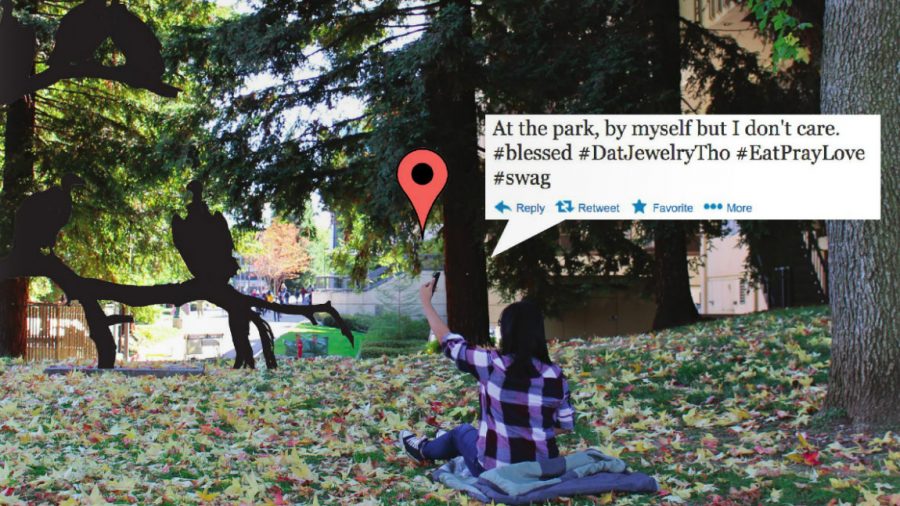Pop culture followers were shocked on Oct. 3 when it was reported that reality star Kim Kardashian West was robbed of 11 million dollars of jewelry at gunpoint in her luxury Paris apartment.
Local police said that the robbers tracked West’s multiple social media sites containing at least 85 million followers on Instagram and another 48 million on Twitter. The high-profile robbery has many people beginning to wonder if oversharing on social media could possibly be a personal safety hazard.
Michele Foss-Snowden, a communication studies associate professor who teaches media rhetoric at Sacramento State, said that posting intimate details on social media comes from the desire of humans to share their narratives with others.
“Humans are storytellers by nature,” Foss-Snowden said. “It’s part of how we learn, part of how we interact and build our societies, cultures and tribes. Social media represents a new way to tell the story of who we are.”
Foss-Snowden also said that the biggest factor that makes someone an “oversharer” is age and maturity, as millennials have no problem sharing their lives on social media because electronic communication is something they are very familiar with and have grown accustomed to.
Jake De La Hoya, a junior social work major whose online presence is very public, echoes Foss-Snowden’s points and said that he uses these platforms to let his friends and followers know what he’s doing in his personal life, such as traveling or modelling new fashions.
“You enjoy the attention you’re getting, because (it means) people are generally interested in your life and what you’re doing,” said De La Hoya, who has garnered more than 1,000 followers on each prominent social media site. “If some of my posts get a lot of likes on Instagram, like over 150, that makes me happy.”
De La Hoya said he also shares his exact locations to check in at restaurants, work and school on Facebook and Instagram.
“Honestly, I don’t think I take any precaution when sharing on social media, because I haven’t thought about it being dangerous ever until now,” De La Hoya said. “That’s never running through my mind because I try to assume the best in people, but granted I know that situations happen.”
Similarly to De La Hoya, sophomore liberal studies major Ariana Raya is just as active on social media but said that all her profiles are very private.
“I don’t use any type of location services and all of my stuff is super, super private, just because I don’t like people I don’t know seeing things about me,” said Raya, who then remembered that oversharing on social media was also the reason why reality star Kylie Jenner (Kardashian West’s sister) was stalked earlier this year. “(Social media) can definitely be dangerous if you don’t use it wisely.”
Despite the risks, De La Hoya said people shouldn’t refrain from having an online life, just as long as they take precautions and think before they post anything private.
“I think (sharing on social media is) definitely a factor to your safety and well-being,” De La Hoya said. “But I don’t feel like that should stop someone from wanting to portray their life. If they don’t want to check in, they don’t have to, and they can still post the photo.”
In recent years, Snapchat and Instagram’s new “story” feature have been gaining popularity for automatically getting rid of photos from accounts after 24 hours. But Anum Aamer, a senior public relations major and president of Public Relations Student Society of America at Sac State, said that people should be more aware of what they’re signing up for on those sites.
“(Snapchat has) a hard drive where everything goes to, so nothing ever truly disappears,” Aamer said. “If you read the bylaws of Snapchat, it says that they can use your photo, your likeness, (and) your voice all without your permission because you’re giving them access to that by using the app.”
For Foss-Snowden, the professor recommends that social media users should delay sharing their posts until they are at a safe location and they should be more thoughtful of the possible consequences that come from what they share and with whom.
“I respect the benefits that social media gives us, but I think there are times and places where it’s okay for us to unplug a little bit and engage in traditional forms of communication,” Foss-Snowden said. “I would never give (social media) up and I don’t want to give it up, but I do think that there’s a way for us to do both.”






























































































































